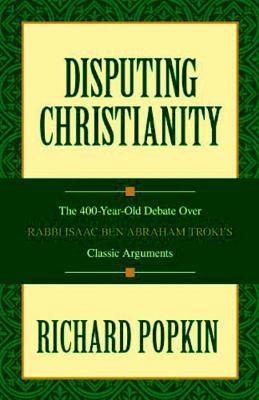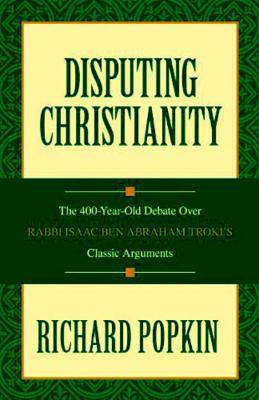
Bedankt voor het vertrouwen het afgelopen jaar! Om jou te bedanken bieden we GRATIS verzending (in België) aan op alles gedurende de hele maand januari.
- Afhalen na 1 uur in een winkel met voorraad
- In januari gratis thuislevering in België
- Ruim aanbod met 7 miljoen producten
Bedankt voor het vertrouwen het afgelopen jaar! Om jou te bedanken bieden we GRATIS verzending (in België) aan op alles gedurende de hele maand januari.
- Afhalen na 1 uur in een winkel met voorraad
- In januari gratis thuislevering in België
- Ruim aanbod met 7 miljoen producten
Zoeken
Disputing Christianity
The 400-Year-Old Debate over Rabbi Isaac Ben Abraham Troki's Classic Arguments
Richard H. Popkin
Hardcover
€ 62,95
+ 125 punten
Omschrijving
In 1593, the last year of his life, Rabbi Isaac Ben Abraham wrote an incisive cogent polemic against Christianity. This book includes a translation in English of a central portion of Ben Abraham's text. It also provides a commentary that notes many points of historical interest involving this unusual work.
Specificaties
Betrokkenen
- Auteur(s):
- Uitgeverij:
Inhoud
- Aantal bladzijden:
- 246
Eigenschappen
- Productcode (EAN):
- 9781591023845
- Verschijningsdatum:
- 6/02/2006
- Uitvoering:
- Hardcover
- Gewicht:
- 386 g

Alleen bij Standaard Boekhandel
+ 125 punten op je klantenkaart van Standaard Boekhandel
Beoordelingen
We publiceren alleen reviews die voldoen aan de voorwaarden voor reviews. Bekijk onze voorwaarden voor reviews.









